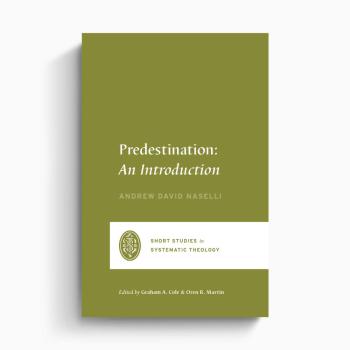Review of What Is Biblical Theology? by James M. Hamilton, Jr.
Just what is “biblical theology”? And isn’t all good theology ‘biblical’ theology? Well, yes and no. Obviously all good theology will be based on the Bible, but “biblical theology” refers to a very specific category within the broad science known as theology. It is this specific category that Southern Seminary Professor James Hamilton’s What Is Biblical Theology? is intended to introduce. In this short book, Hamilton gives a quick overview of this largely overlooked field of study.
So, just what is biblical theology? Hamilton explains:
By the phrase biblical theology I mean the interpretive perspective reflected in the way the biblical authors have presented their understanding of earlier Scripture, redemptive history, and the events they are describing, recounting, celebrating, or addressing in narratives, poems, proverbs, letters, and apocalypses. (16)
In other words, biblical theology traces the unfolding storyline of Scripture and develops a doctrine out of the progressive revelation of God to His people. If it helps, think of it like this: systematic theology gathers all of the verses in the Bible about a single topic and then systematizes what the Bible says about that topic. Biblical theology, on the other hand, looks at the Bible not in its individual parts, but as a whole book. It looks at all topics at the same time and puts systematic theology in its appropriate context.
In What Is Biblical Theology?, Hamilton focuses on three key concepts relevant to the discipline: story, symbol, and church. The “story” section discusses the Bible as a narrative, with plot, themes, characters, and so on. “Symbol” is about how the Bible uses images and types to bind together the various components of the story. The “church” section is about those whom the Bible is for, the group to whom God is revealing Himself. The point of each of these concepts is to teach us how to better understand the Bible as a whole. What is the overall plot? What is the role of symbolism? How does it all apply to the church? When we have these tools under our belts, we’re better able to understand the Bible as a complete text. 
Among the three sections, the middle section on symbols is probably the most useful. In this section, Hamilton breaks down the uses of symbols, images, types, and patterns and gives some broad guidelines on how to properly read and interpret them in Scripture. In the section on typology, for example, he notes that historical events in Scripture are connected to each other both in terms of foreshadowing (the Exodus foreshadows the return from Babylonian captivity, which foreshadows our salvation, which foreshadows our eventual entrance to heaven) and in terms of escalation (that is, each successive event is greater than the one before it). Taken together, we can better see how the narrative of Scripture ties together in God’s plan for the salvation of His people. Without a solid Biblical theology, it can be difficult to apply what happens in Exodus to our daily lives, or to understand how our salvation was foreshadowed by the return from Babylon, and so forth.
Overall, this is an excellent introduction to biblical theology—though it is only an introduction; the would-be student of biblical theology should not stop here. Hamilton is a competent writer (even if his examples at times are a bit forced) and this is a quick read, as well as being a way to help you master the basics of the discipline so that you can go on to read a longer and more difficult work of biblical theology. We’ll be reviewing a few of these longer works here in the next few weeks, but if you enjoy Hamilton’s approach and want to read more you can pick up his longer and much more onerous God’s Glory in Salvation Through Judgment: A Biblical Theology.
This book was provided for free by the publisher for purposes of review. I was not required to write a positive one. It is the first in an ongoing series of reviews of biblical theology texts.
Dr. Coyle Neal teaches Political Science at Southwest Baptist University in Bolivar, Missouri.












